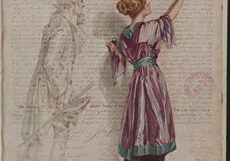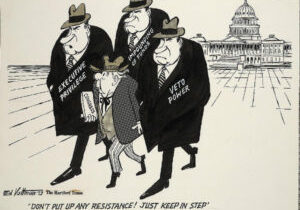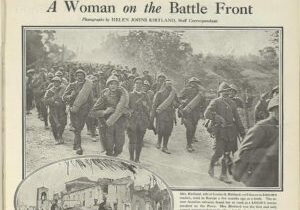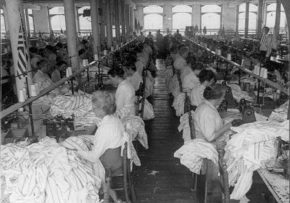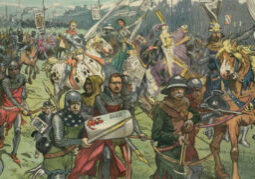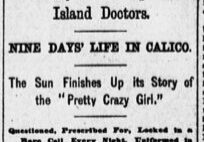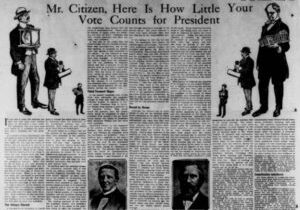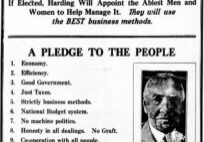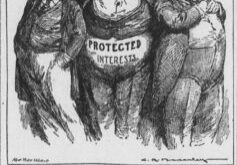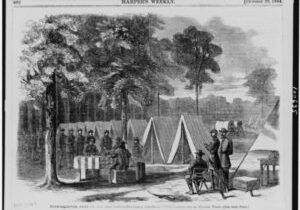Lesson Plans
Gender Equality
Students analyze primary sources to explore news coverage of women’s rights and how people have used media to bring attention to their causes. After, students research and report on a modern-day social movement that has gained attention through citizen journalism and social media.
Covering Watergate & Furthering Transparency
Students analyze primary sources to learn the role of investigative reporting had in uncovering the Watergate affair and keeping citizens apprised as the story unfolded. After, students create their own front-page news story on a modern-day example of investigative journalism that furthered transparency on an issue.
Female Journalists of World War II & Today
Students analyze primary sources to investigate how female press corps broke barriers and challenged public perceptions during World War II. After, students research and report on a contemporary woman journalist who is providing news coverage in a war zone to keep citizens informed.
Triangle Shirtwaist Factory Fire and Migrant Workers
Students analyze primary sources to investigate how the press covered the treatment of sweatshop and migrant farm laborers in the early to mid-1900s. After, students plan an investigative news segment that explores how workers are treated today.
Investigative Journalists: The Muckrakers
Students analyze primary sources to learn about the muckrakers, a group of journalists at the turn of the twentieth century who were among the first in the press to expose social and economic injustices through investigative reporting and photojournalism. After, students write a short news article on a current issue with a social justice focus.
Covering Mental Health
Students explore how the press brings awareness to problems and helps support reform efforts through analysis of primary sources on the mental health reform movement of the mid-nineteenth century spearheaded by activist Dorothea Dix and journalist Nellie Bly. After, students create their own front-page news story about a mental health issue facing Americans today.
Electoral College: Does Your Vote for President Count?
Students work in groups to analyze an historical newspaper article then investigate to understand the historical context of the Electoral College and consider its strengths and weaknesses. After, students continue their work together to investigate and opine on the pros and cons of the Electoral College today and possible solutions for reform.
United States: Biggest Business in the World
Students analyze an historical campaign ad from the 1920 presidential election to consider the purpose and power of political campaign pledges. After, students explore the tactic of comparing the United States to a business both in historical and contemporary contexts.
Identifying Bias in Presidential Election Newspaper Coverage
Students analyze historical primary sources to identify bias and investigate the role newspapers played in shaping public attitude toward the 1912 presidential candidates. Next, students team up to find newspaper coverage (print or digital) of a contemporary presidential election, analyze the sources for bias, and then compare and contrast their historical and contemporary findings. Finally, students communicate their newfound understandings of presidential election newspaper coverage bias through a short written essay, a digital timeline, or a print or digital poster.
Absentee Voting & Voting by Mail
Students study historical primary sources to gain context and perspective regarding absentee voting, including voting by mail, throughout U.S. history. After, students can investigate election voting laws and issues related to absentee voting and voting by mail to help them craft an editorial in support of or against these practices.
